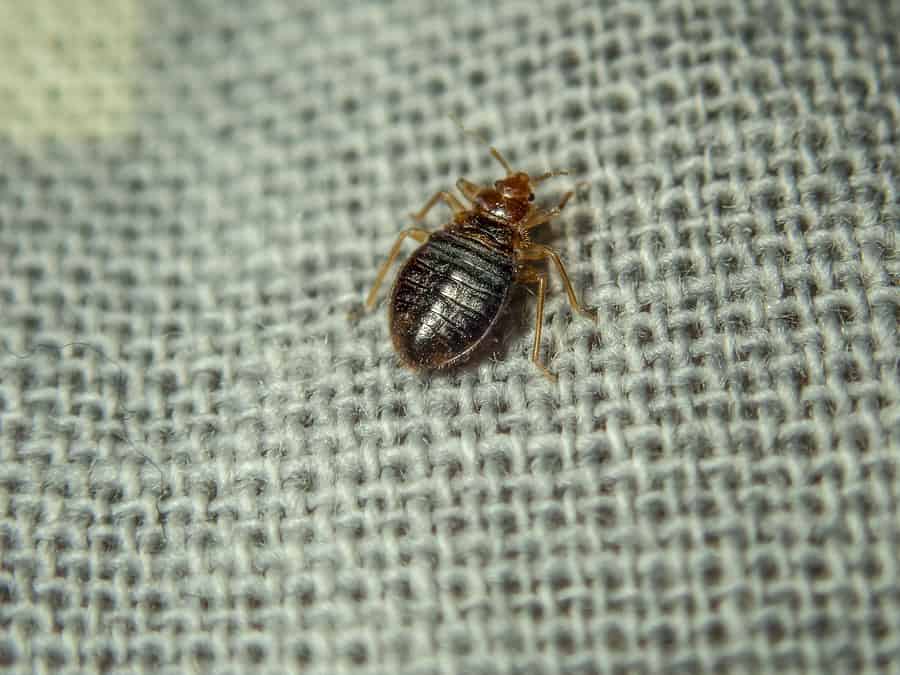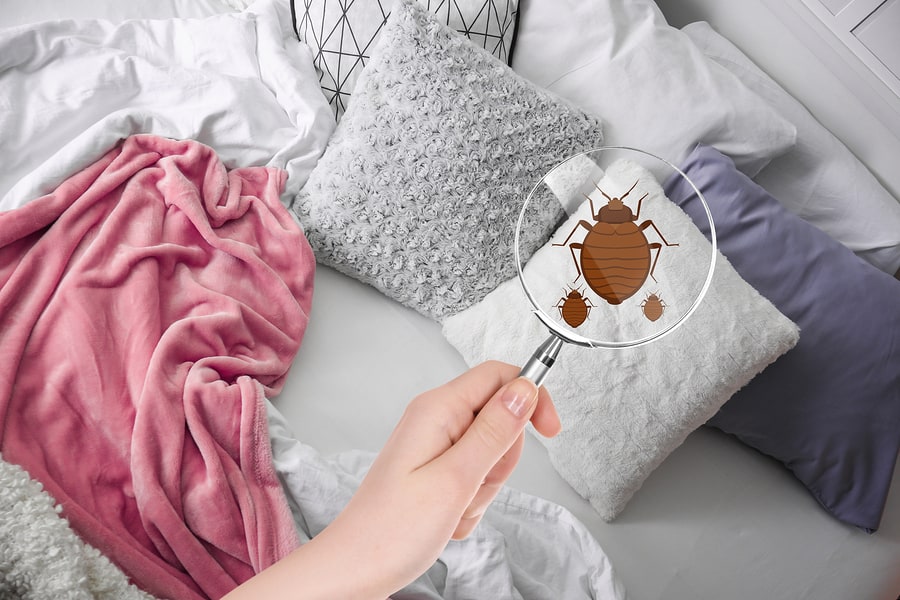READY TO GET STARTED?
REQUEST A FREE ESTIMATE
Fill out the form below or call (888) 466-7849 for a free, no-obligation estimate.

Our summer travels will soon end and the start of the school season begins for many families. As our travel season slows down, that doesn’t mean bed bug season will end anytime soon. Bed bugs are active year-round and they’re always looking for an opportunity to hitchhike into homes! It’s essential to know how bed bugs enter homes to help prevent and treat them before an infestation occurs.
Traveling season is the perfect time for bed bugs to make their way into your home. Bed bugs are notorious for latching on to bags, purses, luggage, and even wheelchairs. Before entering your home after travel, unpack your luggage outside instead of bringing it inside. Take all your clothes and wash them immediately, making sure to run them through a high-heat dryer cycle. The high heat helps to kill bed bugs as they cannot withstand high temperatures.
Before storing your suitcases, vacuum them out and leave them outside of your house. Consider storing them in outside places such as in a garage or storage closet. An alternative option is to seal suitcases in large plastic storage bags before bringing them in.
Another common, lesser-known way bed bugs can enter homes is through second-hand furniture that is already infested. Before purchasing, make sure to inspect used couches, mattresses, or box-springs for these pests.
If a bed bug infestation occurs, it can often require a very intense treatment to eliminate them. If you suspect that you have bed bugs, call your licensed pest control company as soon as possible. They will provide you with the best treatment plan and give recommendations to prevent future infestations.

Bed bugs are an extremely difficult pest to get rid of. Is there a season that is worse for bed bugs than others? While there is no official bed bug season, a recent study published in the Journal of Medical Entomology shows a peak in bed bug activity in August and a low in February. Other studies have shown that peak season for bed bugs runs from June through October. Bed bugs appear more prevalent in warmer months likely due to an increase in travel and hotel visits during spring break and summer vacation, as well as college students moving into dorms at the beginning of the school year. More movement, more travel and more activity lead to an increased opportunity for bed bugs to hitch a ride on luggage, people and pets. This increase in travel also allows them the opportunity to spread very quickly, establishing new infestations practically overnight.
Bed bugs have been found in homes, college dorms, nursing homes, schools, hospitals, office buildings, hotels, daycares, hospitals, public transportation, and even planes.
Even though bed bug season appears to peak in the warmer months, they still remain active year round. That’s why it is important to be vigilant when traveling or hosting out of town visitors regardless of the time of year. Here are some tips to help prevent bed bugs from infesting your home.
If you suspect you have a bed bug infestation, contact a professional bed bug control company who can provide you with a thorough inspection and set you up with a comprehensive treatment and prevention plan going forward.
Stop Leaves at the Line of Scrimmage with Gutter Protection!
Are Termites Active In Fall and Winter?

Now that the holidays and spring break are over, travel season is slowing down; but that doesn’t mean that bed bug season is too. Bed bugs are active year-round. Even though you may not be travelling, guests coming to your home can bring bed bugs in too. Bed bugs are nuisance pests that are extremely difficult to get rid of. They are notorious hitchhikers, most commonly catching a ride on bags, purses, luggage, and wheelchairs, but they can also be found on clothing. Anyone can bring bed bugs into your home – an unexpected house guest, your spouse returning from an out of town work trip, or even your child coming home for a visit from college. Once bed bugs have gotten into your home, professional bed bug control is your best option to get rid of them. However, there are things you can do to help keep guests from bringing these pests into your home.
What You Should Know Before Termite Swarming Season
What Attracts Cockroaches To A Clean House?
10 Ways To Care For Your Lawn In Extreme Heat